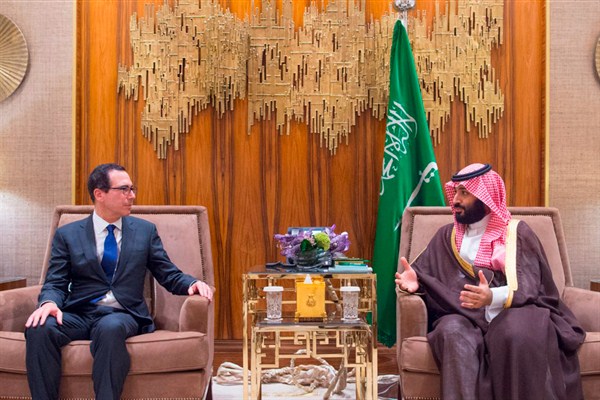Editor’s note: Guest columnist Neil Bhatiya is filling in for Judah Grunstein, who will be back next week.
Saudi Arabia continues to face unprecedented criticism from the United States, its longstanding regional ally, over the murder of Washington Post columnist Jamal Khashoggi in the Saudi consulate in Istanbul four weeks ago. Earlier this month, Congress formally asked the Trump administration to determine whether Khashoggi’s killing exposed Saudi leaders to sanctions under the Global Magnitsky Act, a law passed two years ago with broad bipartisan support to punish credibly accused violators of human rights around the world.
Saudi Arabia is trying to move as quickly as possible to avoid such international condemnation. Some in Washington, including Republican Sen. Rand Paul, have suggested that Global Magnitsky Act sanctions are a way of letting the Saudis off easy—to blame some Saudi officials without actually impacting the regime in Riyadh. That would be a damning precedent, but it isn’t a foregone conclusion. The Trump administration could, instead, deploy the Global Magnitsky Act more effectively, strengthening the law in the process and repairing the administration’s own reputation when it comes to defending human rights.

